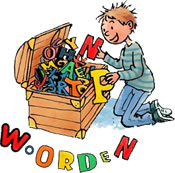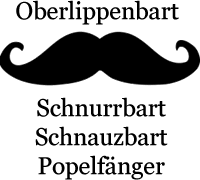| français | English | Cymraeg |
|---|---|---|
| le rouget | red snapper | brathwr coch (?) |
| saler | to cure (by salting); to salt | halltu |
| fumer | to cure (by smoking); to smoke | cochi; sychu mewn mwg; sychu trwy fwg |
| sécher | to cure (by drying) | sychu |
| traiter | to cure (leather) | cyweirio; barcio; cwrio |
| guérir | to cure (illness, problem, habit) | gwella; iach’au; mendio |
| le terrain de football | football pitch | mas/cae pêl-droed; cae ffwtbol |
| l’invasion de terrain | pitch invasion | ymosodiad ar faes |
Month: May 2014
Curing, cleaning and caring
Yesterday I discovered that there are quite a few different French translations of the verb to cure, depending on what kind of cure you’re talking about.
If you’re curing food by salting, the French equivalent is saler (to salt); curing by smoking is fumer (to smoke), and curing by drying is sécher (to dry). Curing leather is traiter (to treat), and curing illnesses, problems or habits is guérir (to cure, heal, recover).
The equivalents of these words in Welsh are:
– halltu = to cure (by salting)
– cochi (“to redden”); sychu mewn mwg; sychu trwy fwg = to cure (by smoking)
– sychu = to cure (by drying)
– cyweirio; barcio; cwrio = to cure (leather)
– gwella; iach’au; mendio = to cure (illness, problem, habit)
Do other languages have separate words for these?
The English word cure comes from the French curer, which means ‘to clean out’ in Modern French, and meant ‘to take care of, to clean’ in Old French, and comes from the Latin cūrāre (to care for, take care of, cure), from cūra (care, concern, trouble), from the Old Latin coira-, from the Proto-Indo-European root *kʷeis- (to heed).
Sources: Reverso, OED, Online Etymology Dictionary, Wiktionary
Woordenschat

I came across an interesting Dutch word today – Woordenschat [ˈʋoːɾdəsxɑt] – which means vocabulary. Woorden = words and schat = treasure, and also love honey, darling, sweetheart. So woordenschat is a “treasure of words” or “word treasure”. It reminds me of the English expression wordhoard, an alternative term for vocabulary, from the Old English wordhord.
Are there similarly interesting terms for vocabulary in other languages?
Woord also appears in such expressions as:
– woordafbreking = hyphenation (“word breaking/splitting/dividing”)
– woordelijk = verbatim, literal, word-for-word (“word like”)
– woordenboek = dictionary (“word book”)
– woordenlijst = glossary, word-list (“word list”)
– woordenrijk = verboose, volubly (“word rich”)
– woordenstroom = verbiage (“word flow”)
– woordenwisseling = altercation (“word exchange”)
– woordenzifter = nitpicker, niggler, hair-splitter (“word sifter”)
Schat also appears in such expressions as:
– schatje = baby, honey, sweetheart
– schatkist = treasure chest
– schatmeester = treasurer
– schatrijk = immensely rich
Producing oneself
I came across an interesting expression in a French newspaper article I read today – se produire – which means to produce, occur, take place, perform, appear, and appears in such phrases as:
– devoir se produire = to be bound to happen
– se produire sur scène = to appear on stage
– ce qui risque de se produire = what could well happen; what might happen
– laisser se produire = to allow to happen
– se produire en concert = to play in a concert
One literal translation of this expression is “to produce oneself”, and I like the idea that I produced myself (as if from a hat 🙂 at a gig last week.
Source: Reverso
Language quiz
Here’s a recording in a mystery language.
Can you identify the language, and do you know where it’s spoken?
Les mots de le semaine
| français | English | Cymraeg |
|---|---|---|
| fin | thin (layer, cable, wire, fingers, paper) | tenau; main |
| maigre | thin (person, animal, smile) | tenau; main |
| mince | thin (face, argument, evidence) | main |
| léger | thin (fabric, coat) | tenau |
| peu épais | thin (soup, sauce) | tenau; dyfrllyd |
| clairsemé | thin (hair) | tenau; moel |
| désépaissir | to thin (hair) | teneuo; moeli |
| éclaircir | to thin (trees) | teneuo; mynd yn denau |
| délayer | to thin (sauce, paint) | teneuo |
| fluidifier | to thin (blood) | teneuo |
| susceptible | thin-skinned | croendenau |
| épais | thick | trwchus; tew |
| épaisser | thicken | tewhau; tewychu |
| insensible | thick-skinned | croendew |
| bête | thick (person) | twp; hurt; gwirion |
| au beau milieu de qch; en plain cœur de qch |
in the thick of sth | yng nghanol rhywbeth |
| être au cœur de l’action | to be in the thick of it | bod yn ei chanol hi |
| contre vents et marées | through thick and thin | drwy’r tew a’r tenau; doed a ddelo |
| la brochure (gen); le tract (pol) | pamphlet | llyfryn; pamffledyn; pamffled |
Schurrbart

I came across the wonderful German word Schnurrbart [ˈʃnʊrba:ɐ̯t] recently and just liked the sound of it. The Bart part means beard – you can see the connection – and the Schnurr part comes from schnurren (to purr).
According to Wikipedia: “Ein Schnurrbart ist ein über der Oberlippe wachsender Bart.” or “A moustache is an beard growing over the lip”, and it is also referred to as an Oberlippenbart (overlipbeard). A large moustache is called a Schnauzbart (Schnauze = lip, muzzle, snout).
Other words used for moustache in German include Bürste (brush), Schnauzer (a type of dog), Schnorres, Schnorrati, Sör, Rotzbremse (“snot brake”) and Popelfänger (“bogie catcher”). Do you know/use any others?
Other words for moustache in English include tache/tash, whiskers, face fungus, tea/soup strainer, snot catcher/mop, lip rug, and crumb catcher.
The English word moustache comes from French, from the Neapolitan word mustaccio.
Do moustaches have interesting names or nicknames in other languages?
Sources: bab.La dictionary, PONS dictionary, Wikipedia, howtogrowamoustache.com, OED
Market places
Last week the origins of the word agora came up in conversation and I thought I’d find out more.
An agora was a place of gathering or marketplace in Ancient Greece. It comes from the Ancient Greek ἀγείρω [ageirō] (I gather, collect), from the Proto-Indo-European *ger- (to assemble, gather together), which is the root of the English words gregarious, aggregate, congregate, egregious, segregate, allegory, category, and panegyric, via the Latin gregārius (of the herd, common), which comes from grex (herd, flock).
In Romance languages, such as Aragonese, Asuturian, Galician, Ladino, Mirandese and Portuguese, the word agora is also found, but it means ‘now’ and comes from the Latin expression hāc hōra (‘this hour’). The Spanish word ahora (now) comes from the same root. hōra comes from the Ancient Greek ὥρα [hōra] (time, season, year), from the Proto-Indo-European *yōr-ā, a suffixed form of *yēr/*yeh₁r- (year, season), which is the root of the English word year, and the words for year in many other Indo-European languages.
Source: Wiktionary
The friend who asked about agora wondered whether the Welsh word agor (open) might come from the same root. I haven’t been able to find any information about this. Does anybody know?
Language quiz
Here’s a recording in a mystery language.
Can you identify the language, and do you know where it’s spoken?
Grammatical gender matters

In languages with grammatical gender, like French, you can often get away with getting the genders wrong, although it’s best to try to learn them when you learn nouns. However there are some words that have different meanings in different genders.
An example in French is loup(e): le loup [lu:] (masculine) is a wolf, and la loupe [lu:p] (feminine) is a magnifying glass – the context will clarify what you mean if you get the genders mixed up, and the pronunciation helps as well.
The following French words have the same pronunciation but different meanings in different genders:
– le boum = bang, explosion / la boum = party
– le bout = tip, end / la boue = mud
– le cave = idiot, sucker / la cave = basement, cellar
– le chêne = oak tree/wood / la chaîne = chain, channel
– le col = collar, neck / la colle = glue
– le livre = book / la livre = pound (curreny/weight)
– le manche = handle / la manche = sleeve / la Manche = English Channel
– le mur = wall / la mûre = blackberry
– le rose = pink (colour) / la rose = rose (flower)
– le vase = vase / la vase = silt, mud
More words like this: http://french.about.com/od/vocabulary/a/dualgender_2.htm
One way to avoid getting your genders in a muddle is to talk about everything in the plural.